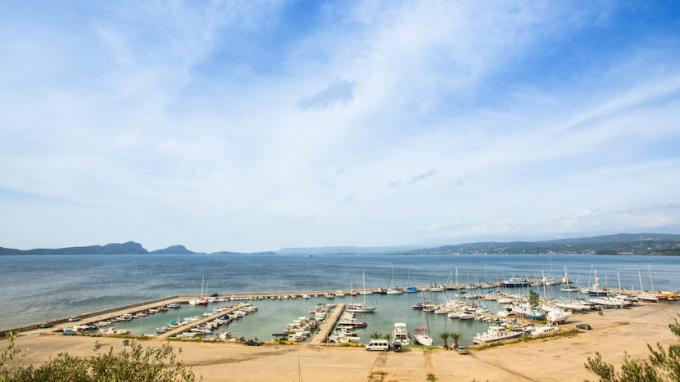O Institutional Act number 5, or simply AI-5, was a legal device implemented by the regimenMilitary in Brazil, on December 13, 1968. It was the Institutional Act that was characterized by suspending the political rights of all Brazilian citizens and, consequently, giving rise to the trends of the so-called “linehard” of the Military Regime. The AI-5 is seen by many historians as a “coup within the coup”, that is, a break with the tendency that had prevailed in the regime until then, the castelista (concerning the first general president, CastleWhite), which was more moderate.
Institutional Acts and the 1967 Constitution
It is known that the Military Regime was instituted in Brazil from March to April 1964. The coup – or, as the military called the act, the “revolution” – was led by the Supreme Revolutionary Command, captained by the General Costa e Silva. It was this command that granted the first Institutional Act, written by the jurist FranciscoFields. Campos had conceived the authoritarian Constitution of 1937, which gave an aspect of legitimacy to the dictatorship of the stateNew Vargas.
O AI-1 it became a vector of legal-political coordination parallel to the 1946 Constitution, then in force at the time. The subsequent Institutional Acts, little by little, were superimposed on this Constitution until, in 1967, a new Charter was drafted and granted.
The 1967 Constitution absorbed the assumptions of the four Institutional Acts, so that it was already born as an authoritarian Constitution. As historian Marco Antônio Villa says in his work The History of Brazilian Constitutions, commenting on article 151 of the aforementioned constitution:
The military regime constitutionalized part of the arbitrary legislation it had produced. According to article 151, “whoever abuses individual rights […] and political rights, to attack the democratic order or practicing corruption, will incur in the suspension of these latter rights for a period of two days to ten years, declared by the Supreme Court, through representation of the Attorney General of the Republic, without prejudice to the applicable civil or criminal action, ensuring the patient the widest defense". The style was from the Estado Novo, but seasoned with the language of the “pronouncement” of April 1, 1964. In this way he hung a sword of Damocles over any parliamentarian. After all, the definitions of “abusing” and “trying against the democratic order” were elastic, serving power at its convenience. [1]
As AI-5 succeeded this Constitution, it was to be expected that its content would be even harsher than it. Among the factors that contributed to this hardening was the denial that the Chamber of Deputies gave the Executive Power to prosecute the deputy Márcio Moreira Alves, who had criticized, in a speech on September 2, 1968, the invasion of campus of the University of Brasilia for politics. Federal deputies voted “no” on December 12 (the official result was 216 to 126). The next day, the AI-5 was made public.
Revolutionary factions and the triumph of the “hardline”
O AI-5, in large part, was also an authoritarian response to articulated revolutionary guerrilla groups in Brazil since the beginning of the 1960s and that, after the coup, they started to promote terrorist actions, like the one that occurred at the Guararapes Airport, on July 25, 1966. A member of the communist faction ActionPopular (AP) exploded a bomb in the lobby of the airport with the aim of victimizing General Costa e Silva, which did not happen. The explosion caused the death of journalist Edson Régis de Carvalho and retired Vice Admiral Nelson Gomes Fernandes, in addition to also causing the amputation of the right leg of the Pernambuco civil guard Thomaz de Here in the.
The growing spread of revolutionary factions in the years 1966 and 1967 served as yet another subterfuge for the writing of AI-5 and for the consequent prevalence of the “hard-line” in the regime, represented by Costa e Silva since AI-1, when he captained the Supreme Command Revolutionary.
What deserves to be highlighted here from the text of AI-5 are the four points of its Article 5. Let's see:
The suspension of political rights, based on this Act, matters simultaneously and:
I – termination of the forum privilege by prerogative of function;
II – suspension of the right to vote and to be voted in union elections;
III – prohibition of activities or manifestations on the subject of a political nature;
IV - application, when necessary, of the following security measures:
a) probation;
b) prohibition to attend certain places;
c) determined domicile.
The suspension of political rights, as we can observe, placed the country in the category of “police state”. The biggest harmed by this measure were the politicians who still tried to face the regime in the Congress and ordinary citizens, which had nothing to do with the war between the military and the factions revolutionaries.
GRADES
[1] VILLA, Marco Antonio. The History of Brazilian Constitutions: 200 years of struggle against will. São Paulo: Editora LEYA, 2011.
By Me. Cláudio Fernandes

